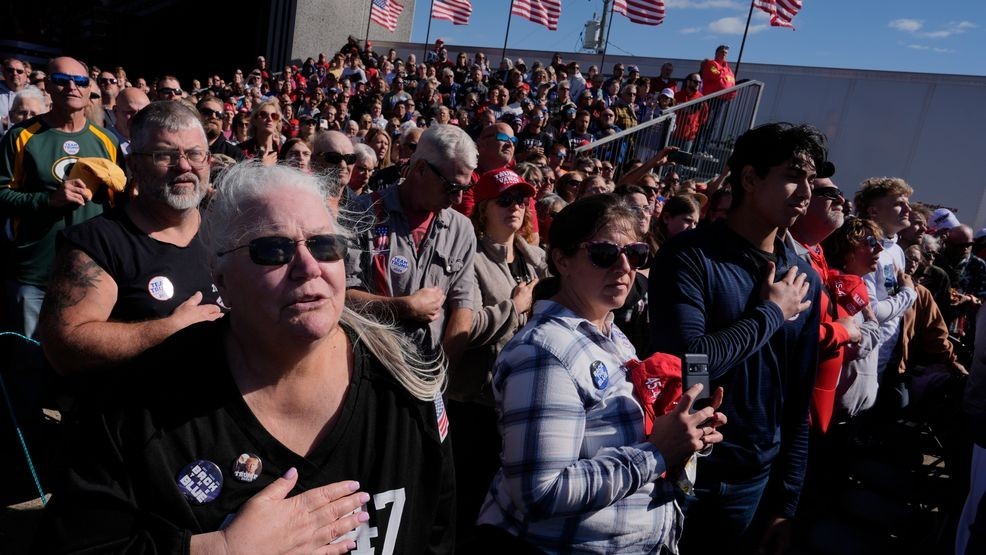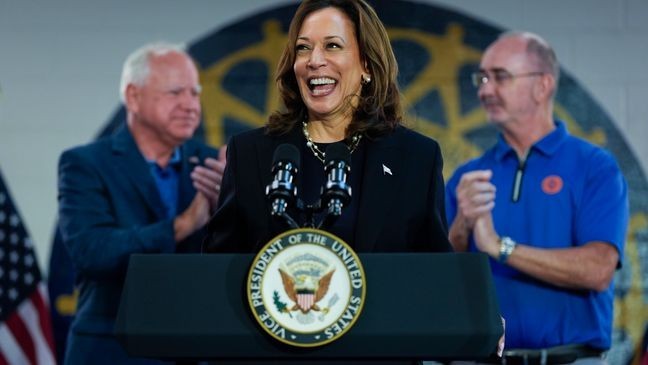Coping with political differences: Strategies for a healthier dialogue
WASHINGTON (TNND) — Americans say the presidential election is negatively impacting their mental health, and to cope, some are avoiding family and friends with different views from their own.
In a new survey from Forbes Health, conducted by Talker Research, 61% of Americans said their mental health has either been slightly, moderately, or significantly negatively impacted by the upcoming election. 46% reported feelings of anxiety, 37% felt stress, and 31% experienced feelings of fear.
I'm just ready for this election to be over," declared Deana Bass Williams, a Republican strategist. "I do believe that this election is negatively impacting my peace.
Dr. Tyffani Monford, a licensed psychologist and interim director of clinical services at MetroHealth Health System, said people must occasionally disconnect from politics.
"We have 24-hour news cycles. We have social media where we're constantly being inundated with election information. There are a lot of issues at this time that are on ballots that are personally speaking to people and their individual rights. So I'm not surprised that we are experiencing more stress at this point," she said.
"We need to make better decisions about what point in time are we going to talk to people about certain issues, and at other times we're going to choose not to. We also need to kind of prepare ourselves for whatever way it turns out,” she cautioned.
How am I going to manage it? And then also identifying over what do I have control.
Twenty-one percent of Americans are avoiding family and friends with differing views. Williams said that despite her stress about the election, avoiding loved ones is the wrong approach.
"My mom, my sister, and I are the only people in our family that are voting for Donald Trump. So if I had to avoid my family because of political worldviews, I would never see them," she explained. "If I'm only talking to people who share my political worldview, then I really am missing half of the conversation, and there may be things that I don't know."
Alexander Heffner, civility advocate and host of "Breaking Bread," agrees.
I interviewed governors and senators from all these disparate places, and what I found was that we do have the capacity to have that human exchange if only we're intentional about it," he said.
"There has been for decades that mantra of agreeing to disagree, and I think we took that too far where we were just stopping the learning and the empathy that is required when you engage with people from different backgrounds," he added. "I'd encourage that person or Americans to rethink that notion that you're going to only be engaging with a homogeneous population of people who think like you do, that's never the way America has been."
When engaging in civil discourse, there are a few things you have to keep in mind.
"Are there things that we both believe that we can start with, and those may be the places that we start? We also want to make sure that the goal is not to be threatening to the other person. The goal is also to make sure am I actually listening to what this other person is telling me. Also, you may want to identify what issues with this particular person are too volatile for me to touch," advised Monford.
I love talking to anyone willing to engage in civil discourse, who understands what they believe, and who respects what I believe," Williams noted. "We don't believe in living in an echo chamber. If we're only talking to people who share our views and are in lockstep with us, then I feel like we're doing ourselves a disservice.
"And as communicators, I think it's important for us to be communicating with people who disagree with us. I also think it's very important to model civil discourse and to understand that you can be opponents without being enemies," he added.
Forty-four percent of Americans say they feel anxious about spending time with family and friends for the upcoming holiday season with the presidential election right before it. The silver lining is that about the same amount, 42%, say they can comfortably share their political opinion about the election with friends.



